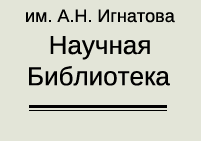 |
НАУЧНАЯ БИБЛИОТЕКА - РЕФЕРАТЫ - Корни Ирландии (english) - (реферат)
Корни Ирландии (english) - (реферат)
Дата добавления: март 2006г.
Irish Roots
If a person is of Irish descent and wishes to trace his ancestors, it can be a lot of fun, and quite often it ends in success -- although the odds are very much against finding all there is to know in many cases! In the first place, it is handy to know from which of the Thirty-Two Counties the ancestors came, bearing in mind that Queen's County is now called County Laoais; King's County, County Offaly; Queenstown is now Cobh, and Kingstown, Dun Laoghaire -- to name but a few. The county of origin on both parental sides should ideally be established, along with the correct spelling of the surname, since often an "0" or a "Mac" becomes lost on emigration. Christian names are helpful, as the custom has largely been to pass down a fathers Christian name to his son. With the surname, Christian name and county of origin, it is useful to glean from family folklore, word of mouth, old letters, old deeds, or inscriptions in old books, from what parish or town the ancestors came. If a family can remember a parish or a townland, then half the quest is over. It is helpful to know if the relations were farmers, shopkeepers or professional people; and their religion, be it Catholic, Church of Ireland, Presbyterian or Quaker, as each has its own records. The most difficult tracings are, of course, from the mass emigration of the famine years from 1845 onwards. But it is still possible to do a trace in many cases. In Ireland, the registration of births, marriages and deaths began in 1864, and records are kept at the offices of the Registrar-General at the Custom House in Dublin. Non-Catholic marriages are recorded here from 1845. The Public Record Office in the Four Courts, Dublin, holds many tithe payment records, and all manner of records relating to wills. The Registry of Deeds office, Henrietta Street, Dublin, has property information dating from the 1700s. The National Library in Kildare Street, Dublin, has one of the best-informed, most patient and diligent library staffs in the whole ancestor-tracing world. Here are directories, antiquarian journals, family histories, and vast collections of national and local newspapers in which to delve. If the ancestor was of the Catholic faith, then once a parish or a townland of origin has been established, a visit can be paid to the parochial registers of the local Catholic parish church in Ireland, where most parish priests are of considerable help, understanding and patience in the game of "roots. " In the "Twenty-Six" counties there are, alas, considerable gaps in many public records, as in the turbulent days of the fight for freedom, and in the subsequent Civil War, hundreds of thousands of public records were blown sky-high, or burnt to the ground. In the "Six Counties" however, the Public Record Office in Belfast has excellent records, particularly of tithes and their payments. Tombstone hunting has its place in ancestor tracing, but the mass of unmarked graves of famine victims, or families frequently too poor to erect inscribed stones, rather limits this field of interest. The ancestors would need to have been wealthy indeed to have had family tombs! Despite the difficulties which can be encountered, it is still well worth the attempt to trace ones ancestors, even though that attempted trace may be unsuccessful, since in the process something will be learned of the time and place of leaving the original homestead, and this helps to illuminate the history of the dispersal of a restless people all over the known world.
|  |

